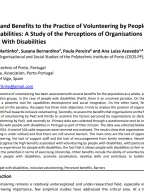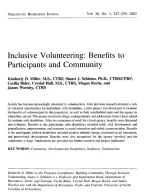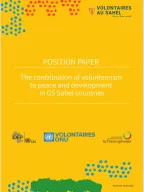What does the evidence say?
Strengths of volunteer action in peacebuilding |
|
Gender and inclusion |
|
Gender and inclusion |
|
Youth and Peacebuilding
Evidence suggests that local interventions involving youth volunteers can have greater effects on sustaining peace in the future. In Kenya, youth who joined volunteer peace initiatives reported more trust of members from other ethnic groups and stronger belief it the capacity of different communities living together peacefully. The collaborative project “Youth Volunteers Rebuilding Darfur” builds upon the potential of young Darfuris to sustain peace in Sudan by acknowledging the links between volunteering, peace and sustainable livelihoods: “We need more education, financial programs for beekeepers and protection plans for farmers. But without peace, there won’t be development, and this project is giving us some tools to make it possible” (Youth volunteer testimony). In Timor-Leste, young volunteers take on an active role in monitoring conflict-related risks through a national early warning system and in Sri Lanka a study commissioned by UNFPA and UNV has shown the potential role of young leaders and volunteers in preventing violent extremism.















